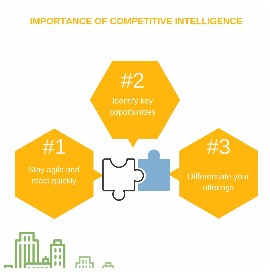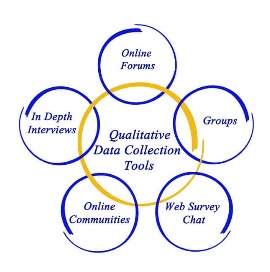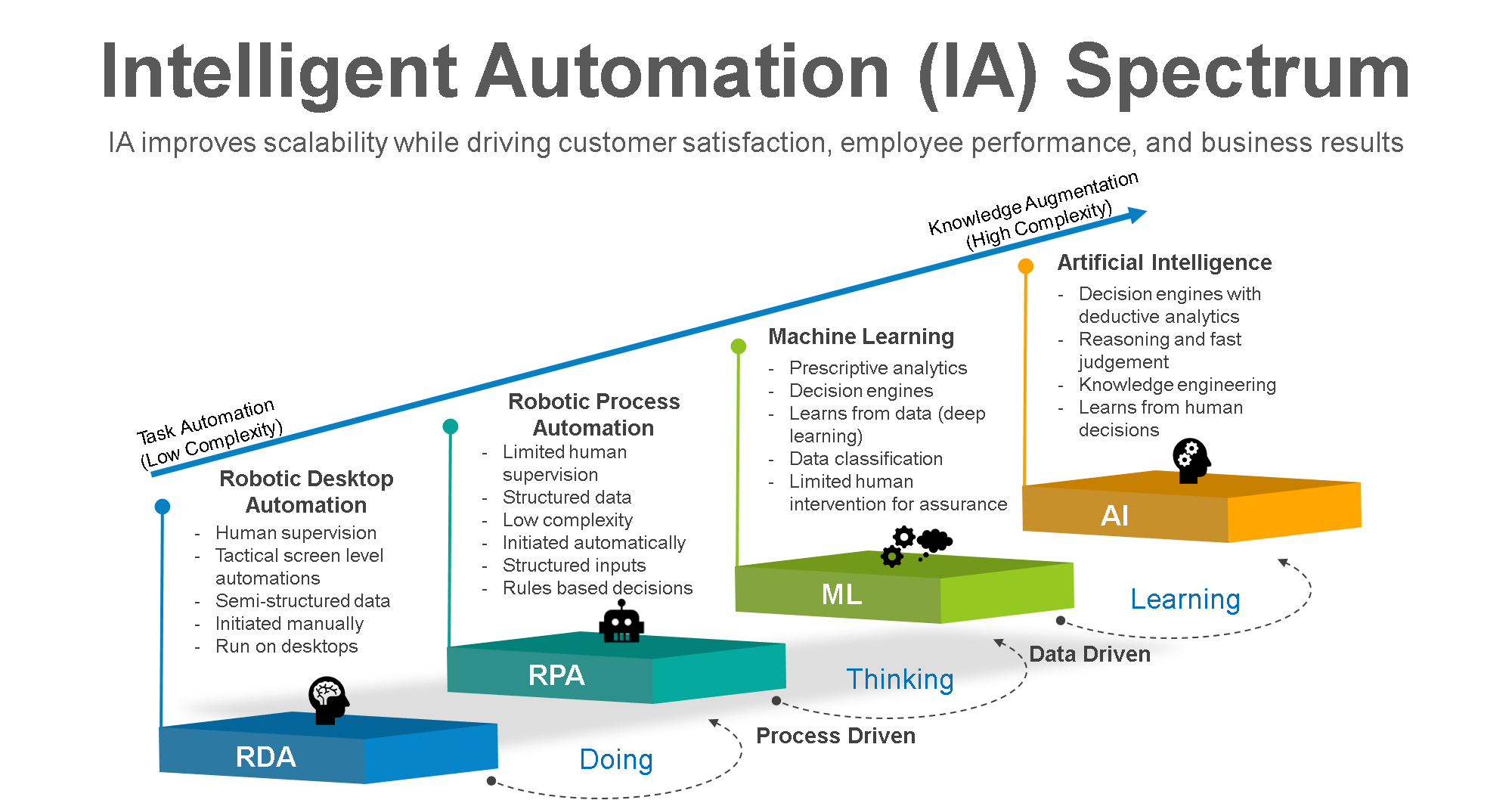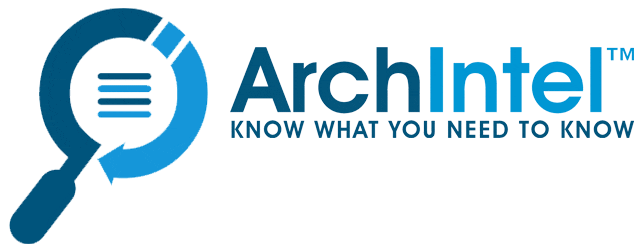August Jackson, senior director of Market and Competitive Intelligence with Deltek, recently spoke with ArchIntel regarding Competitive Intelligence within the government contracting sector. He discussed how he measures success, develops Competitive Intelligence reports, how to mitigate biases, as well as how technology has changed the competitive landscape.
Jackson will be featured as a keynote speaker during ArchIntel’s AI in Competitive Intelligence Virtual Event. After his address, Jackson will moderate the expert panel, hosting Suki Fuller from The Council of Competitive Intelligence Fellows, Fred Hoffman with Mercyhurst University, and Arik Johnson, chairman of Aurora Worldwide Development Corp.
Register for ArchIntel’s AI in Competitive Intelligence Virtual Event on Oct. 22nd!
“Whoever my audience is, I always assume their time and attention is a lot more important than mine. I’m going to put in the time and the effort to think, ‘what is the best way I can communicate this to this particular person?’ I try to get as individual as possible.”
ArchIntel: How do you measure success within Competitive Intelligence?
“When measuring success, I first look at metrics and key performance indicators. We have to discover our purpose in this particular organization. I’ve worked in teams that have served very different purposes for the organization. 
Some Competitive Intelligence teams guide strategic decisions for the senior decision makers of the firm, where you assume a strategy advisory role. Other times, you help to guide or inform the product or services roadmap, similar to product marketing.
Sometimes you’re supporting sales and trying to help the organization win more business. Most often, you’re doing a couple of these things at once, and your measure of success depends on what your purpose and your mission is inside of the organization.
If you’re in that role where you and your team are there to guide sales success, you will be evaluated on some of the same metrics that your sales force will be evaluated on, such as win rate or optimizing the sales goals for your organization. This may be to win more market share or sell at a higher margin, for example.
If you’re there to guide strategic decisions, you might have qualitative measures of success, such as meetings or conversations with key stakeholders and decisions that they’ve made based on your intelligence. Success in this situation will be qualitative and subjective, but still a very valuable indication of your performance against the purpose and mission.”
ArchIntel: How do you continue to be competitive as analysis and data gathering has increased in the marketplace?
“Competitive Intelligence has changed since I came into the profession 20 years ago. Having access to data was the basis of Competitive Intelligence. Now, with the volume and speed of data, access really isn’t the question. The question is the ability to capture, interpret, and build insight from data.
In terms of competing with the volume of data in the marketplace, there are a couple of dimensions. Not all organizations, or people within an organization, interpret data the same way. Long term, my view on competition is that it becomes less zero sum. Instead, you use your competition to drive yourself to become a better version of yourself and the organization.
You have to see opportunities that others don’t see, where competitors don’t have that same attention or interpretation.”
ArchIntel: How do you become aware of your biases while collecting data and information?
“There’s a fantastic book that has been foundational in national security intelligence circles, called The Psychology of Intelligence Analysis. The best analysts that I’ve worked with understand their own psychology and the psychology of their stakeholders at a deep level, and they take that understanding very seriously.
 An individual framing for intelligence is something that people new to the profession don’t keep in mind. It wasn’t something I ever thought of when I started in Competitive Intelligence. For example, confirmation bias is when you hear something that confirms what you already believe. Your brain gives you this little reward and it feels really wonderful.
An individual framing for intelligence is something that people new to the profession don’t keep in mind. It wasn’t something I ever thought of when I started in Competitive Intelligence. For example, confirmation bias is when you hear something that confirms what you already believe. Your brain gives you this little reward and it feels really wonderful.
As an intelligence analyst you begin to recognize that reward and distrust it. While I might have those endorphins, I am aware that it is my confirmation bias speaking. You need to bring this information into a framework so you can evaluate this information objectively. That’s something that a lot of people don’t necessarily consider.
Thinking Fast and Slow, by Daniel Kahneman, presents this idea of System 1 and System 2 thinking. When you recognize that you have these biases in your System 1 thinking, you have to get that information into what Kahneman called a Systems 2 framework.
That helps you put that information into an appropriate analytical context, where you can examine it in the context of other information. I always use that approach when we receive word-of-mouth information.
You also need to evaluate the reliability and credibility and placing information into the appropriate context so we can understand its meaning.
Another factor to consider while collecting data is ethics. It is absolutely critical that Competitive Intelligence professionals have a very strong sense of the legal and ethical frameworks for how we do what we do. People coming into the role from outside could be unintentionally unethical because they’re unaware of the high ethical standard.”
ArchIntel: How has emerging technology changed the way you conduct Competitive Intelligence?
“Organizations seem much more open to procuring technology, platforms, and solutions as part of the Competitive Intelligence process. In earlier roles in my career, I struggled to make the case for purchasing software and tools to facilitate the process.
Now, there is a newfound openness. I’ve thought about why that change might have taken place. I realized that technology is tied into other parts of business processes now and demonstrated its value in different business functions.
An example would be customer relationship management (CRM). The success that sales teams have when they’re effectively applying CRM technology really makes the case for technology in other business functions as well.
There’s a much greater recognition of technology platforms for Competitive Intelligence, particularly in the context of the volume and the speed of data. I see leaders that are starting to take advantage of artificial intelligence (AI), machine learning (ML), and automation tools.
These tools help us deal with the huge volumes of data and the speed at which they come at us. Automation helps us move away from some of the more mundane or time-consuming aspects of the role, which gives you more time to do analysis and speeds the time to insight.
Sometimes when new technology automates a part of the business, I feel sad. I think of some of the things I learned early in my career by doing some very tedious tasks.

Automation has eliminated the need to have my nose down in a spreadsheet, struggling to make a pivot table and making sense of a huge amount of data. Stakeholders had an analysis paralysis. If you conducted analysis and they wanted a different format, you had to rework your analysis. I learned a lot through those processes.
I wonder if the Competitive Intelligence professionals will miss that benefit that I had from doing some of those tedious tasks. At the same time, there are some very time consuming aspects of the role, and you could think deeper and can do more projects if only you didn’t have to perform those time consuming tasks.
Now we’re getting to those points where we don’t have to do a lot of tedious things, which has opened up opportunities for analysis or supporting more stakeholders than we were able to support before.
Finally, the horizon of value is always moving. When I started in the profession, it was difficult to find information. Search engines were very new. With Google, I could find information a lot more easily.
Some people might have seen search engines as an existential threat to CI roles. While people had more information available, they didn’t necessarily have the time to interpret it. I think AI is going to be a continuation of that, where Competitive Intelligence will add value based on insight.
ArchIntel: How is Competitive Intelligence unique in government contracting (GovCon)?
“Competitive Intelligence in GovCon is different from the broader commercial world, and there are three themes that emerged for me.
Competitive Intelligence professionals with government contractors have the highest level of ethics, mostly by necessity. If there’s even the slightest question of ethical behavior, or if you had access to any kind of information that maybe you shouldn’t have in the pursuit, that can cost you the win.
CI professionals that I speak to in GovCon tell me stories about finding information marked “Confidential” posted to competitors’ web sites that they had to take to their and their competitor’s corporate counsel and document how they had not used that information. That’s the level of ethical concern that is far beyond most other industries that I’ve observed.
That’s related to the second theme, which is that you’re competing and cooperating with the same parties all the time. You might be competing with a company on a particular contract vehicle or pursuit, then you’re teaming with that company on different pursuits. That presents a competition versus cooperation dynamic. It is very different in GovCon than any other industry that I’ve observed.
Finally, it’s the customer that’s purchasing the offering. In some form or another, you’re essentially selling to the same customer, and it requires so much intelligence about the customer. Customer intelligence becomes a significant part of the role as well, which is something that doesn’t necessarily play out in other industries that aren’t as monopsonistic as GovCon.”

During ArchIntel’s AI in Competitive Intelligence Virtual Event, you will hear from industry experts who will address how to remain competitive within the marketplace. ArchIntel’s first event will analyze the competitive landscape as technology continues to evolve.
Jackson will discuss how artificial intelligence (AI), machine learning (ML) ,and big data have transformed how businesses conduct Competitive Intelligence (CI) and how stakeholders integrate analyses into market practices.
Register for ArchIntel’s AI in Competitive Intelligence Virtual Event on Oct. 22nd.

